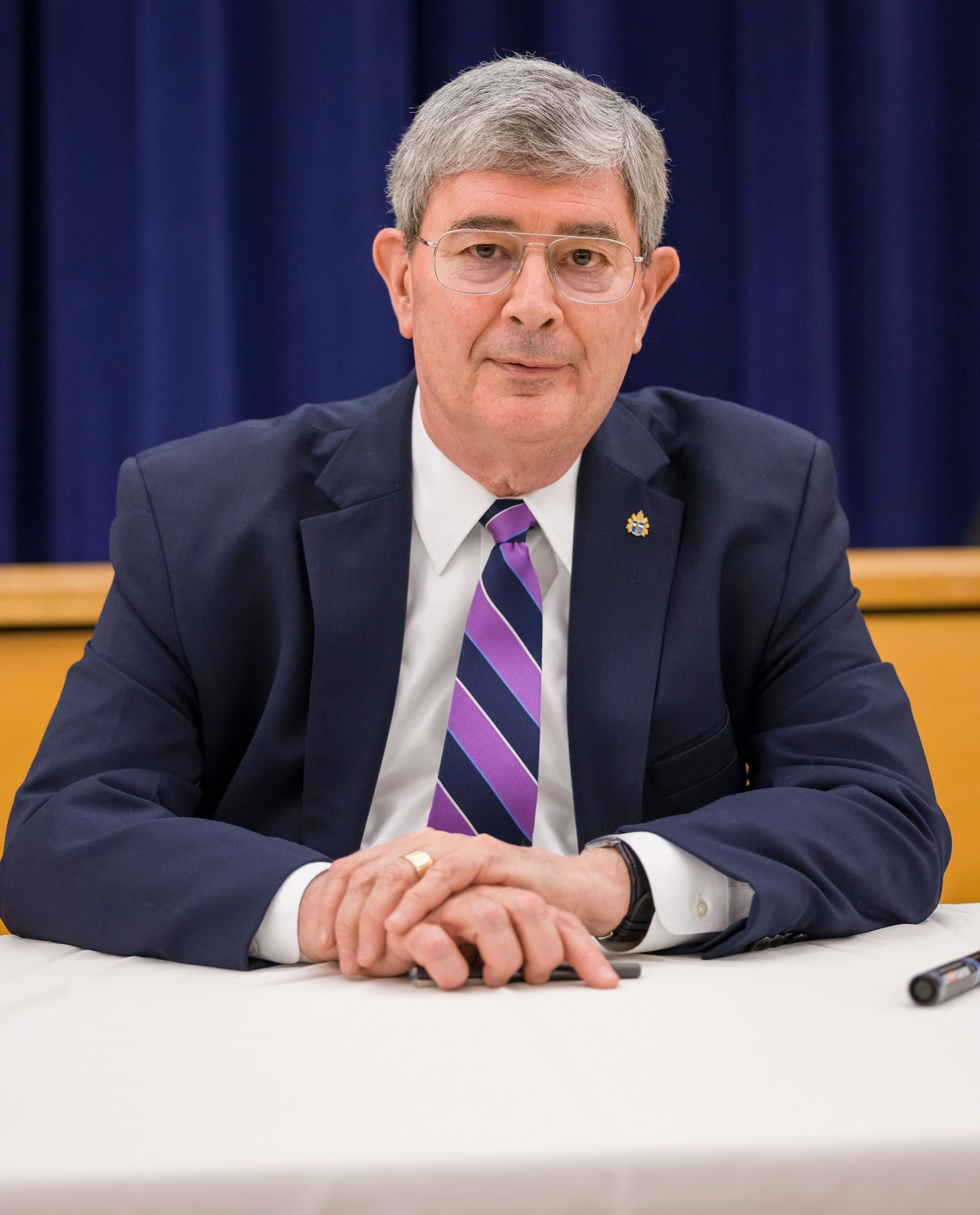In the annals of historical boorishness, it would be hard to find something more egregious than the Holy See’s timing as it renewed its 2018 agreement with the People’s Republic of China, which allows the Chinese Communist party a significant role in the appointment of Catholic bishops. That renewal took place on October 22: the liturgical memorial of Pope St. John Paul II, whose defense of religious freedom helped bring down European communism, and whose burning desire to visit China was repulsed by a Communist regime that obviously feared he might ignite another revolution of conscience there. The mind boggles at the juxtaposition.
John Paul II’s feast was more appropriately observed in London, where Lord Alton of Liverpool, a staunch Catholic, pro-lifer, and human rights advocate, helped publicize a report by Aid to the Church in Need on the “Persecuted and Forgotten”—and had this to say about the Vatican-China agreement:
Ever since it was first signed in 2018, the Sino-Vatican deal has only led to a further increase in and intensification of religious persecution in China and has not led to any improvements whatsoever. Ask Xinjiang’s persecuted Uyghur Muslims, Tibet’s Buddhists, Christians from all denominations, and Falun Gong. It is deeply problematic that this [agreement] has been renewed yet again with no debate, scrutiny, or, it seems, conditionality. The release from prison of jailed Catholic bishops and priests ought at least to have been a condition for the Vatican’s agreement in renewing this tawdry deal. The Vatican should also have called for an end to the continuing unjust imprisonment of Jimmy Lai, a faithful and deeply committed Catholic incarcerated in Hong Kong, as a precondition. Instead, there is a deafening silence when it comes to freedom of religion or belief. The Vatican’s silence on human rights and religious freedom in China is profoundly disappointing and dangerously counterproductive.
At the same event in the Palace of Westminster, Lord Alton also read out the names of ten persecuted Chinese bishops whose cases have been documented by that indefatigable religious freedom campaigner Nina Shea in a report published by the Hudson Institute’s Center for Religious Freedom. The Shea report’s executive summary includes seven action steps that the next U.S. administration should take to address the intensifying crisis of religious freedom in China; one hopes these recommendations will be in play as of January 20. Beyond policy prescriptions, though, the Shea report makes for powerful spiritual reading, as the veteran human rights lawyer (who once defended Nobel Peace Prize laureate Andrei Sakharov) tells the stories of ten brave men who, faithful to the oath they swore before their consecration as bishops, have been true successors to the martyred apostles who walked with the Lord Jesus and laid down their lives in obedience to his command to “Go . . . and make disciples of all nations” (Matt. 28:19).
As Advent draws near, remember these men and their witness: Cardinal Joseph Zen, bishop emeritus of Hong Kong, who has lived his retirement at great risk as a voice for the voiceless; Bishop James Su Zhi-min, in continuous secret detention for twenty-seven years after being tortured in a labor camp; Bishop Peter Shao Zhumin, taken into secret custody this past January 2, his sixth detention since the Vatican-China agreement was first signed; Bishop Augustine Cui Tai, persecuted since 1993 and now in secret detention, described by one of his congregants as “our bishop [who] has become a sacrificial lamb”; Bishop Julius Jia Zhiguo, founder of an orphanage for disabled children subsequently dismantled by the regime as an “unauthorized religious activity,” believed to be under house arrest since 2020; Bishop Joseph Zhang Weizhu, arrested in 2021 while convalescing from cancer surgery and secretly detained without due process; Bishop Joseph Xing Wenzhi, missing since 2011; Bishop Thaddeus Ma Daquin, replaced by a regime-compliant bishop in a move supinely approved by the Vatican; Bishop Melchior Shi Hongzhen, confined to a parish church compound for fifteen years and cynically recognized by the regime as bishop of Tianjin because he’s ninety-five and too frail to carry out his episcopal duties; Bishop Vincent Guo Xijin, deprived of his episcopal see by Pope Francis as a condition of the 2018 Sino-Vatican agreement, forced to sleep on the street during the winter, his whereabouts now unknown.
The Church owes Nina Shea and David Alton a great debt of gratitude for bringing these twenty-first-century martyr-confessors to the world’s attention. That such a debt will not be acknowledged in this pontificate is shameful. That the degrading, embarrassing, and evangelically destructive Vatican-China agreement has been renewed is nothing short of scandalous.
George Weigel’s column “The Catholic Difference” is syndicated by the Denver Catholic, the official publication of the Archdiocese of Denver.

George Weigel is Distinguished Senior Fellow of Washington, D.C.’s Ethics and Public Policy Center, where he holds the William E. Simon Chair in Catholic Studies.
First Things depends on its subscribers and supporters. Join the conversation and make a contribution today.
Click here to make a donation.
Click here to subscribe to First Things.
Image by Alfredoko, from Wikimedia Commons, via Creative Commons. Image cropped.



